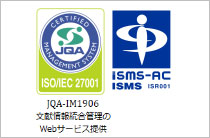ホームIMICライブラリMMWR抄訳2015年(Vol.64)バイタルサイン:アメリカ成人の心臓年齢における州ご・・・
2015/09/04Vol. 64 / No. 34
MMWR64(34):950-958
Vital Signs: Predicted Heart Age and Racial Disparities in Heart Age Among U.S. Adults at the State Level
バイタルサイン:アメリカ成人の心臓年齢における州ごとの心臓年齢予測と人種格差
アメリカでは心血管疾患(CVD)は疾病および死亡の主な原因であり、毎年800,000人近い死亡と約3,200億ドルの費用に関与している。2008年に、Framingham Heart Studyでは心臓年齢(すなわち心血管リスクファクターのプロファイルに基づいた個人の血管系の予測による年齢)のコンセプトを導入し、心臓年齢と実年齢の比較はCVD発症のリスクを表す新しい手法となっている。今回、30~74歳のアメリカの成人間の心臓年齢を推定し、心臓年齢と実年齢間の相違(実年齢との差)を同定するとともに、人種、社会人口学的、州レベルの格差について調査した。2011~2013年のBehavioral Risk Factor Surveillance Systemにデータを使用し、参加者の実年齢、心臓年齢、実年齢との差について、年齢標準化および加重した平均および実年齢との差が5歳以上の割合を算出し、年齢グループ、人種/民族、教育および収入レベル、州により層別化した。参加者は男性236,101人、女性342,424人で、加重平均年齢は各47.8歳、47.9歳、予測心臓年齢は各55.6歳、53.3歳、超過した心臓年齢は各7.8歳、5.4歳であった。心臓年齢は、男性では、黒人(58.7歳)、ヒスパニック系(55.7歳)、白人(55.3歳)、その他(54.7歳)の順に高く、女性ではそれぞれ58.9歳、53.5歳、52.5歳、52.3歳であった。実年齢との差は、年齢の増加および教育レベル/世帯収入の低下により上昇した。全体での43.7%にて心臓年齢と実年齢との差が5歳以上であった。実年齢との差は、男性および女性の両方でユタ州(各5.8歳、2.8歳)にて最も低く、ミシシッピ州(各10.1歳、9.1歳)で最も高かった。30~74歳のアメリカの成人では、予測心臓年齢が実年齢よりも有意に高かった。予測心臓年齢は、リスク伝達を簡単にし、心臓に良い生活を送り、推奨される治療介入により適合するように患者のやる気を起させるとともに、地域社会が心臓血管の健康を支援するプログラムおよび政策を実行する動機になると考えられる。
References
- Mozaffarian D, Benjamin EJ, Go AS, et al.; American Heart Association Statistics Committee and Stroke Statistics Subcommittee. Heart disease and stroke statistics—2015 update: a report from the American Heart Association. Circulation 2015;131:e29–322.
- Wilson PW, D’Agostino RB, Levy D, Belanger AM, Silbershatz H, Kannel WB. Prediction of coronary heart disease using risk factor categories. Circulation 1998;97:1837–47.
- Kurian AK, Cardarelli KM. Racial and ethnic differences in cardiovascular disease risk factors: a systematic review. Ethn Dis 2007;17:143–52.
- Mensah GA, Mokdad AH, Ford ES, Greenlund KJ, Croft JB. State of disparities in cardiovascular health in the United States. Circulation 2005;111:1233–41.
- Siontis GC, Tzoulaki I, Siontis KC, Ioannidis JP. Comparisons of established risk prediction models for cardiovascular disease: systematic review. BMJ 2012;344:e3318.
- Goff DC Jr, Lloyd-Jones DM, Bennett G, et al.; American College of Cardiology/American Heart Association Task Force on Practice Guidelines. 2013 ACC/AHA guideline on the assessment of cardiovascular risk: a report of the American College of Cardiology/American Heart Association Task Force on Practice Guidelines. Circulation 2014;129(Suppl 2):S49–73.
- Soureti A, Hurling R, Murray P, van Mechelen W, Cobain M. Evaluation of a cardiovascular disease risk assessment tool for the promotion of healthier lifestyles. Eur J Cardiovasc Prev Rehabil 2010;17:519–23.
- Groenewegen K, den Ruijter H, Pasterkamp G, Polak J, Bots M, Peters SA. Vascular age to determine cardiovascular disease risk: a systematic review of its concepts, definitions, and clinical applications. Eur J Prev Cardiol 2015 [Epub ahead of print].
- Berry JD, Liu K, Folsom AR, et al. Prevalence and progression of subclinical atherosclerosis in younger adults with low short-term but high lifetime estimated risk for cardiovascular disease: the coronary artery risk development in young adults study and multi-ethnic study of atherosclerosis. Circulation 2009;119:382–9.
- D’Agostino RB Sr, Vasan RS, Pencina MJ, et al. General cardiovascular risk profile for use in primary care: the Framingham Heart Study. Circulation 2008;117:743–53.
- Anderson TJ, Grégoire J, Hegele RA, et al. 2012 update of the Canadian Cardiovascular Society guidelines for the diagnosis and treatment of dyslipidemia for the prevention of cardiovascular disease in the adult. Can J Cardiol 2013;29:151–67.
- Yang Q, Zhong Y, Ritchey M, et al. Predicted 10-year risk of developing cardiovascular disease at the state level in the U.S. Am J. Prev Med 2015;48:58–69.
- Ford ES, Greenlund KJ, Hong Y. Ideal cardiovascular health and mortality from all causes and diseases of the circulatory system among adults in the United States. Circulation 2012;125:987–95.
- Yang Q, Cogswell ME, Flanders WD, et al. Trends in cardiovascular health metrics and associations with all-cause and CVD mortality among US adults. JAMA 2012;307:1273–83.
- Allan GM, Nouri F, Korownyk C, Kolber MR, Vandermeer B, McCormack J. Agreement among cardiovascular disease risk calculators. Circulation 2013;127:1948–56.
- Yun S, Zhu BP, Black W, Brownson RC. A comparison of national estimates of obesity prevalence from the behavioral risk factor surveillance system and the National Health and Nutrition Examination Survey. Int J Obes 2006;30:164–70.
- Bowlin SJ, Morrill BD, Nafziger AN, Jenkins PL, Lewis C, Pearson TA. Validity of cardiovascular disease risk factors assessed by telephone survey: the Behavioral Risk Factor Survey. J Clin Epidemiol 1993;46:561–71.
- Saydah SH, Geiss LS, Tierney E, Benjamin SM, Engelgau M, Brancati F. Review of the performance of methods to identify diabetes cases among vital statistics, administrative, and survey data. Ann Epidemiol 2004;14:507–16.
- Eckel RH, Jakicic JM, Ard JD, et al.; American College of Cardiology/ American Heart Association Task Force on Practice Guidelines. 2013 AHA/ACC guideline on lifestyle management to reduce cardiovascular risk: a report of the American College of Cardiology/American Heart Association Task Force on Practice Guidelines. Circulation 2014;129(Suppl 2):S76–99.
- Magnus P, Beaglehole R. The real contribution of the major risk factors to the coronary epidemics: time to end the “only-50%” myth. Arch Intern Med 2001;161:2657–60.
- Stamler J, Stamler R, Neaton JD, et al. Low risk-factor profile and long-term cardiovascular and noncardiovascular mortality and life expectancy: findings for 5 large cohorts of young adult and middle-aged men and women. JAMA 1999;282:2012–8.
- Lopez-Gonzalez AA, Aguilo A, Frontera M, et al. Effectiveness of the Heart Age tool for improving modifiable cardiovascular risk factors in a Southern European population: a randomized trial. Eur J Prev Cardiol 2015;22:389–96.
Copyright © 2013 International Medical Information Center. All Rights Reserved.












